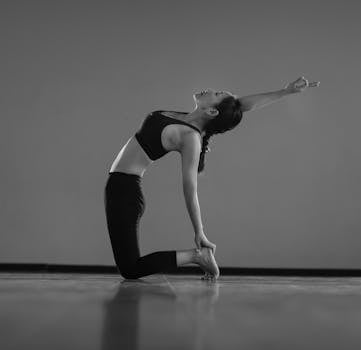
From Mat to Mind: How Yoga and Pilates Transform Your Mental Well-Being
Introduction to Yoga and Pilates for Mental Health

Yoga and Pilates are two popular practices that have been around for centuries, and have been widely recognized for their physical benefits. However, their impact on mental well-being is just as significant. As someone who has personally experienced the transformative power of yoga and Pilates, I can attest to the fact that these practices have the ability to shift your mindset, reduce stress and anxiety, and improve overall mental health.
So, what is it about yoga and Pilates that makes them so effective for mental well-being? Let’s dive in and explore the ways in which these practices can transform your mind and body.
The Science Behind Yoga and Pilates for Mental Health

Yoga and Pilates are both low-impact, mindful practices that combine physical movement with deep breathing and meditation techniques. These practices have been shown to reduce stress and anxiety by activating the parasympathetic nervous system, which promotes relaxation and calmness. They also increase the production of neurotransmitters such as serotonin and dopamine, which are essential for mood regulation and overall mental well-being.
In addition to their physical benefits, yoga and Pilates also have a profound impact on mental health. They promote mindfulness, self-awareness, and self-acceptance, which are all essential for maintaining good mental health. By practicing yoga and Pilates, you can develop a greater understanding of yourself and your thoughts, emotions, and behaviors, which can help you navigate life’s challenges with greater ease and confidence.
Benefits of Yoga and Pilates for Mental Health

So, what are the specific benefits of yoga and Pilates for mental health? Here are just a few:
- Reduced stress and anxiety: Yoga and Pilates have been shown to reduce stress and anxiety by promoting relaxation and calmness.
- Improved mood: The physical movement and deep breathing techniques used in yoga and Pilates can help improve mood by increasing the production of neurotransmitters such as serotonin and dopamine.
- Increased mindfulness: Yoga and Pilates promote mindfulness and self-awareness, which can help you develop a greater understanding of yourself and your thoughts, emotions, and behaviors.
- Improved sleep: The relaxation and calming effects of yoga and Pilates can help improve sleep quality, which is essential for overall mental health.
- Increased self-esteem: Yoga and Pilates can help improve self-esteem and body image by promoting self-awareness and self-acceptance.
Getting Started with Yoga and Pilates for Mental Health

So, how can you get started with yoga and Pilates for mental health? Here are a few tips:
- Find a local yoga or Pilates studio: Look for a studio in your area that offers classes specifically designed for mental health.
- Start with beginner classes: Don’t be afraid to start with beginner classes, even if you have no prior experience with yoga or Pilates.
- Practice at home: You can also practice yoga and Pilates at home using online resources or DVDs.
- Make it a habit: Try to practice yoga or Pilates at least a few times a week, and make it a regular part of your routine.
Remember, the key to experiencing the mental health benefits of yoga and Pilates is to approach these practices with an open mind and a willingness to learn. With regular practice and patience, you can experience the transformative power of yoga and Pilates for yourself.




